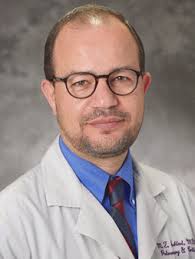coronavirus (2019-nCoV)

The novel coronavirus (2019-nCoV) continues to spread, and the headlines this week point toward a likely rise in cases in the western hemisphere. Dozens of countries continue to report new cases. Two deaths occurred in the US so far. The number of patients may increase if the pattern in other countries is repeated.
As a pulmonologist and critical care specialist who deals with the sickest of patients with respiratory failure related to infections like COVID19, I advise everyone to take this pandemic seriously and follow the recommendations of public health officials.
Here are simple steps that everyone can take, which are based on public health principles and religious practices:
- If you are or have been exposed to someone, who suffers from a contagious illness, like the flu, common cold, or the new coronavirus (COVID19), you have the responsibility of preventing harm to others by staying home to prevent the illness from spreading to others.
- Consult with your doctor if you have a fever, cough, shortness of breath, and fatigue.
- Limit unnecessary international travel and avoid travel to China, South Korea, Japan, and Italy.
- Wash your hands frequently and thoroughly for at least 20 seconds. Be sure to wash in between your fingers, under nails, and including the wrist with soap and water. Use sanitizer frequently, especially after touching others or shaking hands.
- Wash your nose and mouth often. For Muslims, it is similar to what we do in preparation for prayer during Ablution (Wudu).
- Avoid shaking hands or hugging people unnecessarily.
- Avoid coming to gatherings, prayer services in congregations or other meetings if you are sick or exposed to someone who is sick
- When you sneeze, cover your mouth and nose with a napkin or sneeze into your arm at the elbow.
- Use masks only if you are sick or exposed to someone who is sick. There is no need to use a mask if you are not sick or a healthcare provider. No need to buy N95 masks. It is not recommended to the general public, and it won’t provide you with adequate protection. You are hurting healthcare workers who may need them by creating a shortage in the market.
- Get your influenza vaccine if you haven’t already done so. This will reduce the amount of viral respiratory cases in the community.
- Avoid touching your eyes, nose, and mouth with unwashed hands.
- Avoid close contact with people who are sick.
- Clean and disinfect frequently touched surfaces and objects.
- Check the CDC website for the most accurate and up to date information, and feel free to contact the infection prevention hotline if you have any questions.
- And no, this is not a conspiracy or hoax. We have the best healthcare system in the world, but we need to do our part.
Zaher Sahloul, MD

